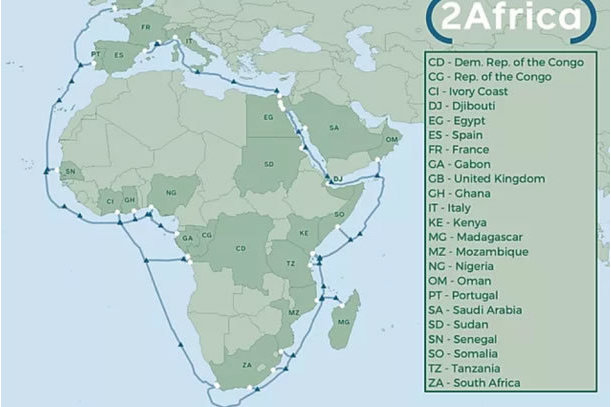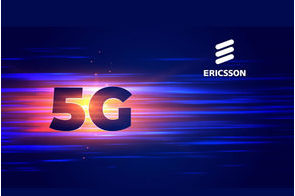Latest News
Study: Facebook Africa investment to add $57.6 billion to region’s GDP

News Highlight
Facebook has been investing in submarine cables and edge networks over the years to improve the region's infrastructure and close the connectivity gap.
A new study on the economic benefits of Facebook's investment intended to boost access to internet connectivity in sub-Saharan Africa (SSA) has shown that the improvement in connectivity arising from the investment will increase the region's gross domestic product (GDP) by $57.6 billion over a five-year period (2020–2024). The study, titled “The Impact of Facebook’s Connectivity Initiatives in Sub-Saharan Africa,” was conducted by Analysys Mason, a global consulting and research firm.
Internet users in SSA are known to pay more for access than their counterparts in other world regions. The major reason for the high cost of connectivity is lack of infrastructure. This also means more people in sub-Saharan Africa lack internet access. According to The Economist Intelligence Unit’s Inclusive Internet Index 2020, over 800 million people in the region (or 72 per cent of the population) are not connected to the internet.
Facebook has been investing in submarine cables and edge networks over the years to improve the region's infrastructure and close the connectivity gap. In May 2020, the social media giant announced a partnership with MTN and other telecommunication companies to build a 37,000-kilometre long submarine cable. The 2Africa cable is touted to be one of the largest subsea projects in the world, connecting 23 countries in Africa, the Middle East and Europe. The cable is expected to support the growth of 4G, 5G and fixed broadband access for hundreds of millions of people.
As part of its investment in SSA’s edge infrastructure, Facebook invests in points of presence (PoPs) and caches. According to the study, the social media company has caches in the networks of telcos in 44 SSA countries. These investments are expected to increase internet traffic in the region by 9 per cent by 2024, generating $53.4 billion in GDP between 2020 and 2024.
Facebook's investment in fibre backhaul infrastructure, currently being deployed in Uganda and Nigeria, is estimated to generate an economic benefit of $3.9 billion by 2024. Analysys Mason said this investment has enabled coverage of high-speed broadband (3G/4G/Wi-Fi) for about four million people.
Facebook has also developed programmes through which it works closely with telcos and internet service providers (ISPs) to improve connectivity. Such initiatives, which include Express Wi-Fi, aim to support operators and ISPs in bringing more people online by extending network coverage and improving service affordability. The study estimates the economic benefit of such programmes at $300 million.
“Over the last three years, we’ve heavily invested in infrastructure and connectivity initiatives that aim to affordably connect people on this continent and create tangible social-economic benefits,” said Kojo Boakye, Facebook’s Africa Public Policy Director. “These efforts are part of a complex solution that requires all stakeholders – including mobile operators, infrastructure providers and governments – to work together for the common good.”
Another initiative by the social media company is Rural Access, which focuses on solutions to drastically reduce rural connectivity costs and extend coverage to more communities. The study said these initiatives create socio-economic benefits for consumers, businesses and governments throughout the SSA region.
“We are only 1% finished and remain committed to this exciting journey and working with all our partners along the way,” Boakye added.
Related News
Latest Blogs
- The Museum of West African Art saga
- The complexity and complication of Nigeria’s insecurity
- Between bold is wise and wise is bold
- Prospects of port community system in Nigeria’s maritime sector
- Constitutionalism must anchor discipline in Nigerian Armed Forces
Most Popular News
- NDIC pledges support towards financial system stability
- Artificial intelligence can help to reduce youth unemployment in Africa – ...
- Green economy to surpass $7 trillion in annual value by 2030 – WEF
- ChatGPT is now the most-downloaded app – report
- Africa needs €240 billion in factoring volumes for SME-led transformation
- CBN licences 82 bureaux de change under revised guidelines






